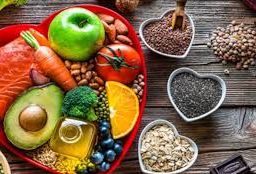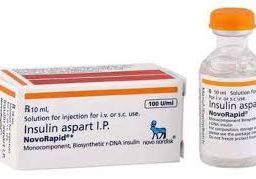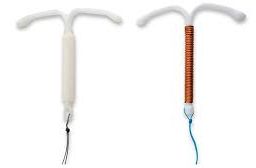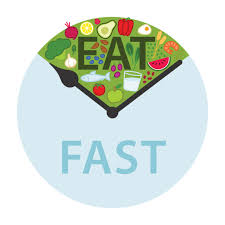
What Are Empty Calories and How Do They Impact Your Health?
In the realm of nutrition, the prevalence of empty calories poses a significant challenge to our health and well-being. Empty calories, devoid of essential nutrients, can lead to weight gain, nutrient deficiencies, and an increased risk of chronic diseases. In this discussion, we will delve into the impact of empty calories on our overall health and explore viable alternatives to foster a balanced and nourishing lifestyle.

In our modern world, convenience often takes precedence over nutritional value when it comes to food choices. Many of us find ourselves consuming foods that provide little to no nutritional benefit, ultimately affecting our health and well-being. These foods, often referred to as “empty calories,” provide little to no nutritional value while still contributing to our daily caloric intake. While the occasional treat is unlikely to cause harm, a regular diet filled with such foods can have significant repercussions on our health.
Understanding Empty Calories:
Empty calories are essentially foods and beverages that provide energy (calories) but offer minimal or no essential nutrients such as vitamins, minerals, fiber, or healthy fats. These foods are often high in added sugars, unhealthy fats, and refined carbohydrates. Examples of common empty calories include sugary drinks, candy, pastries, fried snacks, processed meats, and sugary cereals.
Effects on Health:
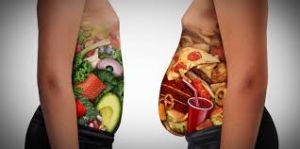
1. Weight Gain and Obesity: Foods with no nutritional value are typically calorie-dense but nutrient-poor. Regular consumption can lead to excessive calories intake, contributing to weight gain and increasing the risk of obesity. These foods often lack the satiety factor, causing individuals to overeat without feeling satisfied.
2. Nutrient Deficiencies: When empty calories replace nutrient-rich options in our diet, we miss out on essential vitamins, minerals, and other beneficial compounds necessary for optimal health. This can result in various nutrient deficiencies, weak immune function, reduced energy levels, and impaired overall well-being.
3. Increased Risk of Chronic Diseases: A diet filled with empty calorie foods can elevate the risk of developing chronic conditions like heart disease, type 2 diabetes, and certain cancers. The excessive intake of added sugars and unhealthy fats present in these foods can lead to inflammation, insulin resistance, and an unfavorable lipid profile.
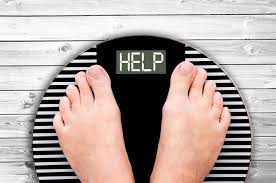
4. Poor Digestive Health: Foods lacking fiber, such as many processed snacks and sugary treats, can disrupt normal digestion and lead to constipation, bloating, and other gastrointestinal issues. Fiber plays a vital role in promoting a healthy digestive system, maintaining regular bowel movements, and supporting gut microbiota diversity.

Refined Sugar: One of the most common culprits is refined sugar, found in various processed foods, sodas, candies, and desserts. While it may satisfy our sweet cravings, it offers empty calories and no essential nutrients. Excessive sugar consumption has been linked to obesity, diabetes, tooth decay, and increased risk of chronic diseases.
Substitutes: Opt for natural sweeteners like honey, maple syrup, or dates. Alternatively, incorporate naturally sweet fruits like berries, apples, or bananas into your diet.
Highly Processed Snacks: Snack foods like potato chips, pretzels, and most commercially available packaged snacks are often loaded with unhealthy fats, artificial flavors, and preservatives. These snacks lack essential nutrients and can contribute to weight gain and poor overall health.
Substitutes: Choose healthier snack alternatives such as air-popped popcorn, whole-grain crackers with nut butter, or homemade vegetable crisps baked in the oven.

Sugary Beverages: Sugar-sweetened beverages like soda, energy drinks, and fruit juices contain high amounts of added sugars and lack any significant nutritional value. Regular consumption of these drinks can lead to weight gain, tooth decay, and an increased risk of chronic conditions.
Substitutes: Quench your thirst with water infused with fresh fruits, herbal teas, or homemade smoothies using natural ingredients like spinach, berries, and unsweetened almond milk.
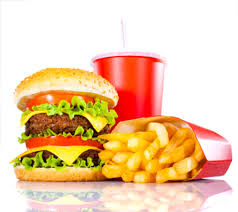
Fast Food Meals: Fast food meals often consist of fried, highly processed ingredients, excessive sodium, unhealthy calories, and added sugars. Regularly consuming fast food can contribute to obesity, heart disease, high blood pressure, and other health issues.
Substitutes: Prepare home-cooked meals using fresh, whole ingredients. Experiment with flavorful herbs, spices, and healthy cooking techniques such as grilling, steaming, or baking.

Artificially Sweetened Products: While touted as a healthier alternative to sugar, artificially sweetened products like diet sodas and sugar-free candies can have adverse effects on health. They can disrupt the gut microbiome, increase cravings for sugary foods, and potentially lead to weight gain.
Substitutes: Choose beverages like herbal tea, infused water, or unsweetened iced tea. For a sweet treat, opt for whole fruits or natural dark chocolate with a high percentage of cocoa.
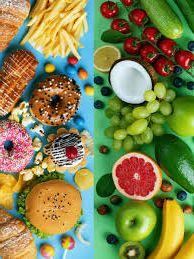
Healthy Alternatives:
1. Fresh Fruits and Vegetables: Swap out sugary snacks for fresh fruits and vegetables. They are packed with essential vitamins, minerals, antioxidants, and dietary fiber, providing a range of health benefits while satisfying your sweet or savory cravings.
2. Whole Grains: Instead of refined carbohydrates found in white bread, pasta, and sugary cereals, choose whole grains like quinoa, brown rice, and whole wheat products. These provide more nutrients and fiber, keeping you fuller for longer.
3. Lean Protein: Opt for lean protein sources such as poultry, fish, legumes, and tofu. They offer essential amino acids for muscle growth and repair, without the added unhealthy fats and sodium found in processed meats.
4. Healthy Fats:
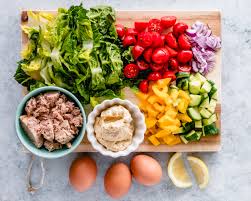
Incorporate sources of healthy fats into your diet, such as avocados, nuts, seeds, and olive oil. These fats provide important nutrients and can help you feel satisfied while supporting heart health.
5. Hydration:

Replace sugary drinks like soda and energy drinks with water, herbal teas, or infused water with fruits and herbs. Staying hydrated is crucial for overall health and can help reduce cravings for unhealthy beverages.
While occasional indulgences are part of a balanced lifestyle, relying on foods with no nutritional value can have detrimental effects on our health. By being mindful of our food choices and opting for nutrient-dense alternatives, we can maintain a well-rounded diet that supports our overall well-being. Remember, moderation is key.
Disclaimer: The information provided in this content is for general informational purposes only. It is not intended as medical or healthcare advice, diagnosis, or treatment. Always seek the advice of a qualified healthcare professional with any questions you may have regarding a medical condition or healthcare decisions.





